Pragmatic Probabilistic Programming: Parameter Adaptation in PyMC3


Colin Carroll, Freebird, Inc.
Cambridge, MA
Slides are online!
Code is also available here.
Many thanks to the PyMC team and contributors, and also to autograd + jax developers.
PyMC3 Syntax
import pymc3 as pm
with my_model: # defined earlier
trace = pm.sample() # ✨✨magic✨✨
PyMC3 and Stan
"There's an old saying... 'Python is the second-best language for everything'" - @callahad #PyCon2018
— Jake VanderPlas (@jakevdp) May 11, 2018

What is tuning?
$$ \mathbb{E}[f] = \int f~d\pi \approx \frac{1}{n}\sum_n f(x_j),~~x_j\sim \pi $$
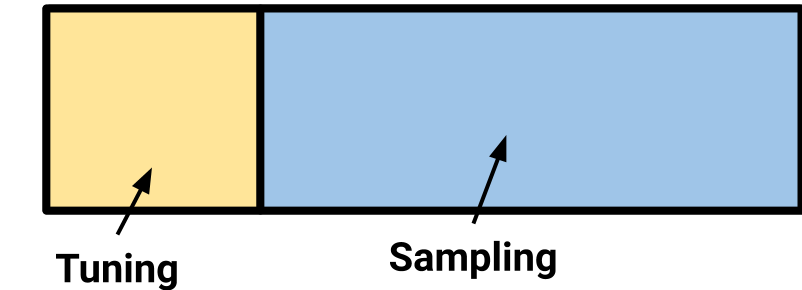
Metropolis-Hastings Adaptation
$$A(x_t) = \min\left\{1, \frac{\pi(x_t)}{\pi(x_{t - 1})}\right\}$$
Baby Steps
Giant Steps
Optimal Steps
Effective sample size
$$\hat{\mu} = \frac{1}{n}\sum_{j=1}^n x_j$$
$$\operatorname{Var}(\hat{\mu}) = \frac{\sigma^2}{n}$$
Effective sample size
$$\hat{\mu} = \frac{1}{n}\sum_{j=1}^n x_j$$
$$\operatorname{Var}(\hat{\mu}) = \frac{\sigma^2}{n_{eff}}$$
Windowed adaptation
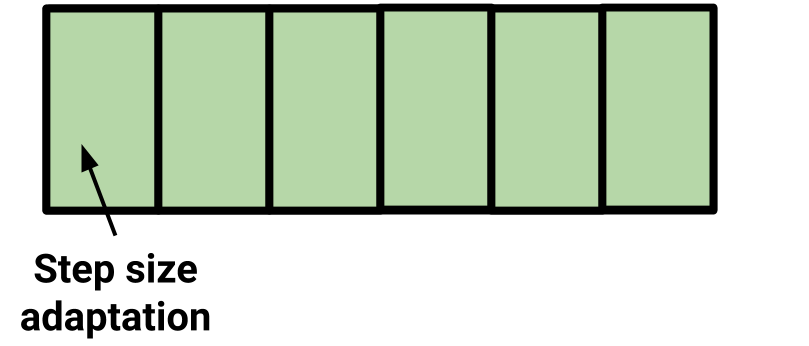
Tuning in PyMC3
def tune(scale, acc_rate):
"""Tunes the scaling parameter for the proposal
distribution according to the acceptance rate over the
last tune_interval:
Rate Variance adaptation
---- -------------------
<0.001 x 0.1
<0.05 x 0.5
<0.2 x 0.9
>0.5 x 1.1
>0.75 x 2
>0.95 x 10
"""
Tuning in PyMC3
def tune(scale, acc_rate):
if acc_rate < 0.001:
# reduce by 90 percent
scale *=0.1
elif acc_rate < 0.05:
# reduce by 50 percent
...
elif acc_rate > 0.5:
# increase by ten percent
scale *= 1.1
return scale
Hamiltonian Monte Carlo
$$\frac{d \mathbf{q}}{dt} = \mathbf{p}, ~~ \frac{d \mathbf{p}}{dt} = - \frac{\partial V}{\partial \mathbf{q}}$$
Hamiltonian Monte Carlo
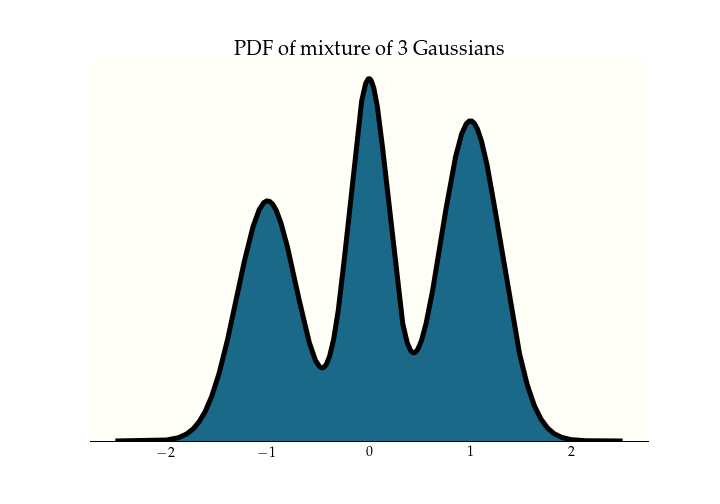
Hamiltonian Monte Carlo
Hamiltonian Monte Carlo
Step Size Adapt
def dual_averaging_adapt(self, p_accept):
self.error_sum += self.target_accept - p_accept
log_step = (self.mu -
t ** -0.5 * self.error_sum / self.gamma)
eta = self.t ** -self.kappa
self.log_averaged_step *= (1 - eta)
self.log_averaged_step += eta * log_step
self.t += 1
return np.exp(log_step), np.exp(self.log_averaged_step)
Step Size Adapt
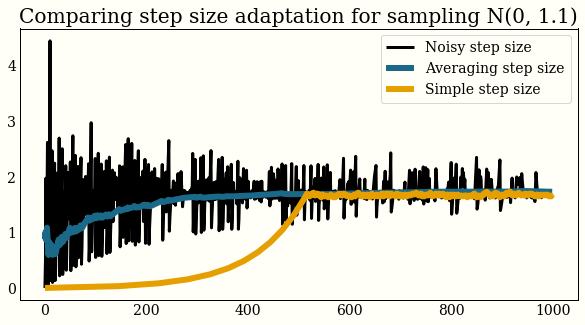
Covariance Estimation
class _WeightedVariance:
def add_sample(self, x):
self.w_sum += 1
old_diff = x - self.mean
self.mean[:] += old_diff / self.w_sum
new_diff = x - self.mean
self.raw_var[:] += old_diff * new_diff
Covariance Estimation
class QuadPotentialDiagAdapt:
def update(self, sample):
self._foreground_var.add_sample(sample)
self._background_var.add_sample(sample)
self._update_from_weightvar(self._foreground_var)
n_samples = self._n_samples
if n_samples > 0 and n_samples % self.window == 0:
self._foreground_var = self._background_var
self._background_var = _WeightedVariance()
self._n_samples += 1
PyMC3 Tuning Routine

Stan Warmup
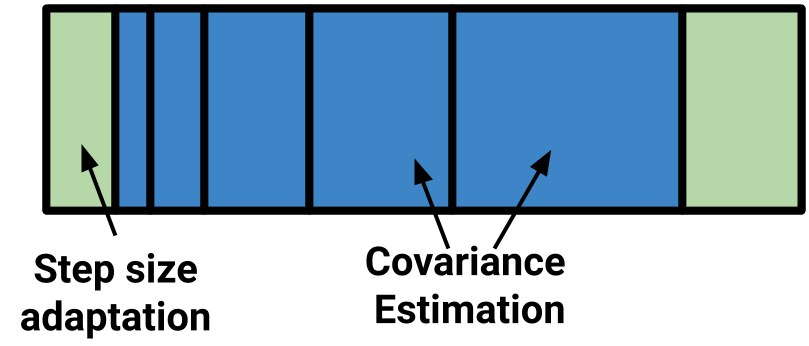
Takeaways
- Automate what you can
- Consider effective sample size
- Windowed adaptation